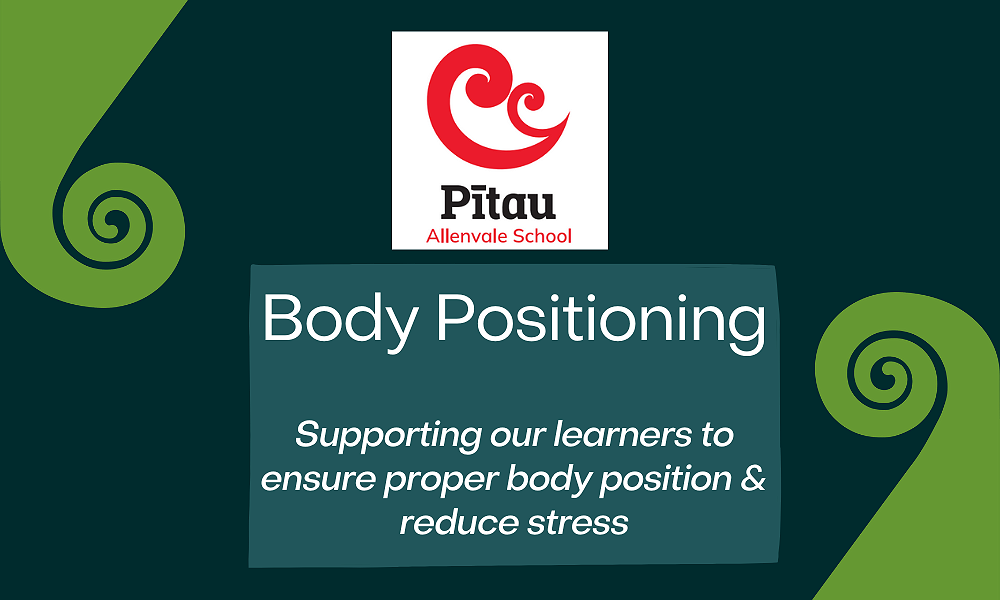
OT: The Importance of Correct Body Positioning
This article explores the different body positions that we commonly see and the impact unsupportive positions can have on our bodies.
Throughout the day we all make choices about how to position our bodies. Limited mobility can make this more challenging for our learners. The way our learners position and use their bodies can change the way their bodies grow.
Body positioning is how we hold our bodies or how our bodies are supported by things around us like chairs, beanbags, wheelchairs etc.
When thinking about body positioning it is important we look at what positions our bodies are in over 24 hours of the day. Think about how many positions your body is in within a 24 hour period and how long our body stays in each position. Moving our bodies out of one position and into another can be automatic (eg rolling from side to side while asleep) but for some of our learners being able to reposition themselves independently is not physically possible, so it then becomes our job to help them do so.
Let's discuss what a supportive position is vs. an unsupportive/destructive position
Supportive positions can be:
- In a wheelchair, classroom chair
- On the ground long sitting, O sitting, side sitting, crossed legged
- Kneeling, high kneeling
- Lying on the ground in prone, supine, side lying
- In a standing frame, walker.
Unsupportive/destructive positions:
- W sitting
- Having a slouched trunk
- Forward flexion of the head/neck
- No back support
- Feet not on the floor.
However, any position (if held for an extended period) can be destructive
What can happen when we allow
children to be in destructive positions
for extended periods of time?
- Severe joint pain, muscle soreness and permanent body shape changes
- Skin rashes, sores, tears, and other skin integrity issues
- Permanent muscle shortening
- Difficulties swallowing, eating, breathing, and communicating
- Very poor sleep quality
What makes a position destructive?
- Gravity
- Alignment (lack of symmetry between both sides of the body)
- Should the bodies ability to move freely and keep itself aligned properly become compromised due to disability or illness, gravity will slowly weigh the body down. As the body attempts to adapt, it can become fixed in a position that can be harmful to your bodies health. While gravity is usually the main reason, some physical and technical factors can also lead to a decline of posture and general comfort.
However, it's not all bad!! We just have to make sure we reposition ourselves and others throughout the day.
If you have any questions regarding any of the information above please get in touch with any of the Occupational therapists or Physiotherapists at Allenvale.
